AoIR2023 Keynote
When:18 October 2023, 18:30 – 20:00 EST
Where: Temple Performing Arts Center, 1837 N. Broad Street
 AJ Escoffery is an associate professor of communication studies at Northwestern University. He is the author of Open TV: Innovation Beyond Hollywood and the Rise of Web Television (NYU Press) and the forthcoming Reparative Media (MIT Press). He has published in numerous journals, including the International Journal of Communication, Information, Community & Society, Social Media & Society, Journal of Cinema and Media Studies, among other dozens of other journals and edited collections. His creative- and community-based work has been recognized by the MacArthur Foundation & Field Foundations, Variety, Filmmaker magazine, and several Chicago publications.
AJ Escoffery is an associate professor of communication studies at Northwestern University. He is the author of Open TV: Innovation Beyond Hollywood and the Rise of Web Television (NYU Press) and the forthcoming Reparative Media (MIT Press). He has published in numerous journals, including the International Journal of Communication, Information, Community & Society, Social Media & Society, Journal of Cinema and Media Studies, among other dozens of other journals and edited collections. His creative- and community-based work has been recognized by the MacArthur Foundation & Field Foundations, Variety, Filmmaker magazine, and several Chicago publications.
Reparative Media:
Cultivating Stories and Platforms to Heal our Culture
At a time when we are more connected than ever, why does it feel like our cultural divisions are intensifying? The companies that connect our cultures – media, tech, and information – are perpetuating centuries-old harms. Repairing our culture means healing how we make media, how we connect through technology, and how we generate knowledge.
Plenary Panel
When: 19 October 2023, 18:30 – 20:00 EST
Where: Sonesta Philadelphia Rittenhouse Square, 1800 Market Street, Philadelphia, PA
Global Challenges to a “Green Revolution” for the Internet
The internet has long been animated by revolutionary discourses from early imaginaries of the digital as sovereignless space, to recent discussions of revolutionizing knowledge through universal access to generative AI. The world-historical paradigm shifts that computers and the Internet have allegedly catalyzed are often collectively referred to as the Fourth Industrial Revolution. Proponents of the fourth industrial revolution, or 4IR, assert that we have now reached industrialization of cybernetic production characterized by the merging of virtual and physical systems through such technologies as ubiquitous and mobile internet, sensors, artificial intelligence, machine learning, blockchain, and the metaverse. But, like a wheel on a road or a turn of a cog in the machine, history repeats in variations, each new “revolution,” marking a return to something that came before. What has often been left out of these transformative digital imaginaries is acute attention to the intersection of virtuality and its heavy industrial reality. Throughout the last decade, internet scholars have increasingly turned their attention to the material and the entangled colonial and imperialist histories of the digital, including at AoIR2018 (Montréal) and AoIR2022 (Dublin). Part of this work has involved a “revealing” of the physicality of the internet, drawing attention to its undersea cables, metal-clad satellites orbiting space, water and energy-consuming data centers, and the accelerating post-consumer e-waste crisis. Steeped in this infrastructural turn in Critical Internet Studies (Acker and Donovan, 2019; Starosielski and Parks, 2015), and drawing from the emergent field of Discard Studies (Burrell, 2012; Gabrys, 2011; Liboiron and Lepawksy, 2022), this plenary panel asks: What might we gain by seeing the internet not as a thing (or collection of things), but as a process defined and determined by transnational flows of resources, materialities, labor, and practices of wasting?
For the past half-century, much of the internet discourse has been dominated by narratives from the Global North. More recently, important contributions of Global South digitalities and materialities have strengthened the field of internet research. Yet we need to do more work to build intellectual collaborations and connections between the Global North and the Global South. This plenary brings together scholars and practitioners working across transnational contexts to discuss the methodological challenges of studying digital discards in their specific and situated geographies, while also attending to the global interconnections between sites of digital wasting. Critical internet scholars, Nanna Thylstrup and Seyram Avle, will be in conversation with Ingrid Burrington and Vusumuzi Maphosa, two members of a transnational team of researchers, funded by the Internet Society Foundation and generously supported by Penn’s Center for Advanced Research on Global Communication. Over the last two years, this team has investigated the processes of digital wasting throughout the tech supply chain—from extraction in Greenland, to waste produced during chip fabrication in Taiwan and Silicon Valley, to wastes associated with industrial computing in the US, through to post-consumer discard practices and risks in Zimbabwe. Chaired by Lauren Bridges and Zane Griffin Talley Cooper, Co-Principal Investigators of the Internet Society research team, this plenary will interrogate the scale and reach of the internet’s environmental impact, and draw out some pressing questions of material politics facing the field of internet research.
Panelists
Ingrid Burrington (Center for Advanced Research on Global Communication)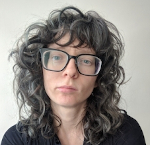 Ingrid Burrington writes, makes maps, and tells jokes about places, politics, and the weird feelings people have about both. Much of her work focuses on mapping, documenting, and studying the often-overlooked or occluded landscapes of the internet (and the ways in which the entire planet has become, in effect, a “landscape of the internet”). Her writing has appeared in The Atlantic, The Nation, Popula, e-flux journal, and other outlets. She is also the author of the book Networks of New York: An Illustrated Field Guide to Urban Internet Infrastructure. Ingrid has previously taught at Rhode Island School of Design, the Cooper Union, and the School for Poetic Computation. Her work has been supported previously by Eyebeam, Data & Society Research Institute, the Studio for Creative Inquiry, and the Center for Land Use Interpretation.
Ingrid Burrington writes, makes maps, and tells jokes about places, politics, and the weird feelings people have about both. Much of her work focuses on mapping, documenting, and studying the often-overlooked or occluded landscapes of the internet (and the ways in which the entire planet has become, in effect, a “landscape of the internet”). Her writing has appeared in The Atlantic, The Nation, Popula, e-flux journal, and other outlets. She is also the author of the book Networks of New York: An Illustrated Field Guide to Urban Internet Infrastructure. Ingrid has previously taught at Rhode Island School of Design, the Cooper Union, and the School for Poetic Computation. Her work has been supported previously by Eyebeam, Data & Society Research Institute, the Studio for Creative Inquiry, and the Center for Land Use Interpretation.
Dr. Vusumuzi Maphosa (Internet Society, Zimbabwe Chapter)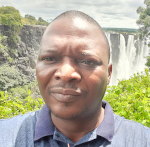 Dr. Vusumuzi Maphosa is the Information and Communication Technology Department Director at the National University of Science and Technology, Zimbabwe. He has published book chapters, peer-reviewed journal articles and conference presentation posters. Vusumuzi is co-PI a multinational research grant from the Internet Society Foundation (ISOC) that focuses on discard challenges affecting the Global South. Vusumuzi’s research covers transformative technological concepts, including ICT4D, educational technology, Industry 4.0, data mining, artificial intelligence, semantic webs and e-governance.
Dr. Vusumuzi Maphosa is the Information and Communication Technology Department Director at the National University of Science and Technology, Zimbabwe. He has published book chapters, peer-reviewed journal articles and conference presentation posters. Vusumuzi is co-PI a multinational research grant from the Internet Society Foundation (ISOC) that focuses on discard challenges affecting the Global South. Vusumuzi’s research covers transformative technological concepts, including ICT4D, educational technology, Industry 4.0, data mining, artificial intelligence, semantic webs and e-governance.
Nanna Bonde Thylstrup, Associate Professor on the Promotion Programme, Dept of Arts and Cultural Studies, University of Copenhagen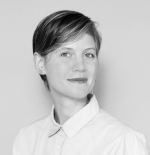 Nanna Bonde Thylstrup is Associate Professor on the Promotion Programme at the Dept. of Arts and Cultural Studies, University of Copenhagen. Her writing and teaching focus on data, machine learning and digital infrastructures. She has published several books on the politics of data and digitization including Uncertain Archives: Critical Keywords for the Age of Big Data (co-edited with Daniela Agostinho, Annie Ring, Catherine D’Ignazio and Kristin Veel, MIT Press, 2021), (W)archives (co-edited with Daniela Agostinho, Soveig Gade and Kristin Veel, Sternberg Press, 2021) and The Politics of Mass Digitization (MIT Press, 2019). Currently Thylstrup is PI of two research project: AI Reuse (2020-2023, funded by the Independent Research Fund Denmark) and Data Loss: The Politics of Disappearance, Destruction and Dispossession in Digital Societies (2023-2028, funded by ERC Starting Grant)
Nanna Bonde Thylstrup is Associate Professor on the Promotion Programme at the Dept. of Arts and Cultural Studies, University of Copenhagen. Her writing and teaching focus on data, machine learning and digital infrastructures. She has published several books on the politics of data and digitization including Uncertain Archives: Critical Keywords for the Age of Big Data (co-edited with Daniela Agostinho, Annie Ring, Catherine D’Ignazio and Kristin Veel, MIT Press, 2021), (W)archives (co-edited with Daniela Agostinho, Soveig Gade and Kristin Veel, Sternberg Press, 2021) and The Politics of Mass Digitization (MIT Press, 2019). Currently Thylstrup is PI of two research project: AI Reuse (2020-2023, funded by the Independent Research Fund Denmark) and Data Loss: The Politics of Disappearance, Destruction and Dispossession in Digital Societies (2023-2028, funded by ERC Starting Grant)
Seyram Avle (University of Massachusetts, Amherst)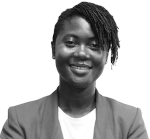 Seyram Avle [/ˈsɛi.rɑːm /ˈɑːv.lɛ] is Assistant Professor of Global Digital Media in the Department of Communication at the University of Massachusetts, Amherst. Her research, funded by various institutions including the National Science Foundation (US), focuses on digital technology cultures and innovation across parts of Africa, China, and the United States. This work primarily takes a critical approach towards understanding how digital technologies are made and used, as well as their implications for issues of labor, identity, and futures. Dr. Avle’s PhD and postdoc are from the University of Michigan and her undergraduate degrees from Brandeis University. She serves as a board member for the Afro-Sino Center of International Relations and has been a visiting fellow at Harvard University’s Center for African Studies (2020-21) as well as an adjunct researcher at the University of Ghana’s Center for Asian Studies, (2018).
Seyram Avle [/ˈsɛi.rɑːm /ˈɑːv.lɛ] is Assistant Professor of Global Digital Media in the Department of Communication at the University of Massachusetts, Amherst. Her research, funded by various institutions including the National Science Foundation (US), focuses on digital technology cultures and innovation across parts of Africa, China, and the United States. This work primarily takes a critical approach towards understanding how digital technologies are made and used, as well as their implications for issues of labor, identity, and futures. Dr. Avle’s PhD and postdoc are from the University of Michigan and her undergraduate degrees from Brandeis University. She serves as a board member for the Afro-Sino Center of International Relations and has been a visiting fellow at Harvard University’s Center for African Studies (2020-21) as well as an adjunct researcher at the University of Ghana’s Center for Asian Studies, (2018).
Plenary Chairs
Zane Griffin Talley Cooper (Center for Advanced Research on Global Communication)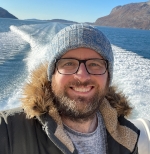 Zane Griffin Talley Cooper is a PhD Candidate at the Annenberg School for Communication at the University of Pennsylvania, a Doctoral Fellow at the Center for Advanced Research on Global Communication, and a Research Affiliate for the Migration in Harmony Research Collaboration Network. His research broadly concerns the intersections and relations between data infrastructures, energy production, and resource extraction in the Arctic. A multimodal scholar with a passion for sustainability, he has held positions at Intel, the Civic Software Foundation, and the McHarg Center for Urbanism and Ecology, where, in various capacities, he has explored the nexus of technology and environmental justice. His work has found its way into journals, art exhibits, design projects, film festivals, and he is the co-author of Digital Energetics, published by the University of Minnesota Press. Cooper holds an M.A. in History from California State University San Marcos and a B.F.A. in Film Studies from the University of Colorado Boulder.
Zane Griffin Talley Cooper is a PhD Candidate at the Annenberg School for Communication at the University of Pennsylvania, a Doctoral Fellow at the Center for Advanced Research on Global Communication, and a Research Affiliate for the Migration in Harmony Research Collaboration Network. His research broadly concerns the intersections and relations between data infrastructures, energy production, and resource extraction in the Arctic. A multimodal scholar with a passion for sustainability, he has held positions at Intel, the Civic Software Foundation, and the McHarg Center for Urbanism and Ecology, where, in various capacities, he has explored the nexus of technology and environmental justice. His work has found its way into journals, art exhibits, design projects, film festivals, and he is the co-author of Digital Energetics, published by the University of Minnesota Press. Cooper holds an M.A. in History from California State University San Marcos and a B.F.A. in Film Studies from the University of Colorado Boulder.
Lauren E. Bridges (Berkman Klein Center for Internet & Society)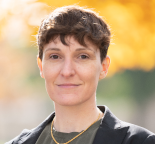 Lauren Bridges is a fellow at the Berkman Klein Center for Internet & Society at Harvard University and from Fall 2024, she will be Assistant Professor of Media Studies at the University of Virginia. Bridges researches the social and environmental impacts of big data infrastructures, with a focus on “the cloud” and the kinds of surveillance regimes, labor relations, and environmental impacts it makes possible and obscures. She has published in New Media & Society, Big Data & Society, Information, Communication & Society, and is co-PI a multinational research grant from the Internet Society Foundation (ISOC) that traces the global flows of e-waste throughout the tech supply chain. Bridges received her PhD from the Annenberg School for Communication at the University of Pennsylvania.
Lauren Bridges is a fellow at the Berkman Klein Center for Internet & Society at Harvard University and from Fall 2024, she will be Assistant Professor of Media Studies at the University of Virginia. Bridges researches the social and environmental impacts of big data infrastructures, with a focus on “the cloud” and the kinds of surveillance regimes, labor relations, and environmental impacts it makes possible and obscures. She has published in New Media & Society, Big Data & Society, Information, Communication & Society, and is co-PI a multinational research grant from the Internet Society Foundation (ISOC) that traces the global flows of e-waste throughout the tech supply chain. Bridges received her PhD from the Annenberg School for Communication at the University of Pennsylvania.
We would like to thank the Center for Advanced Research in Global Communication, housed in the Annenberg School for Communication at UPenn for supporting this plenary.
The full Conference Program is available here.


